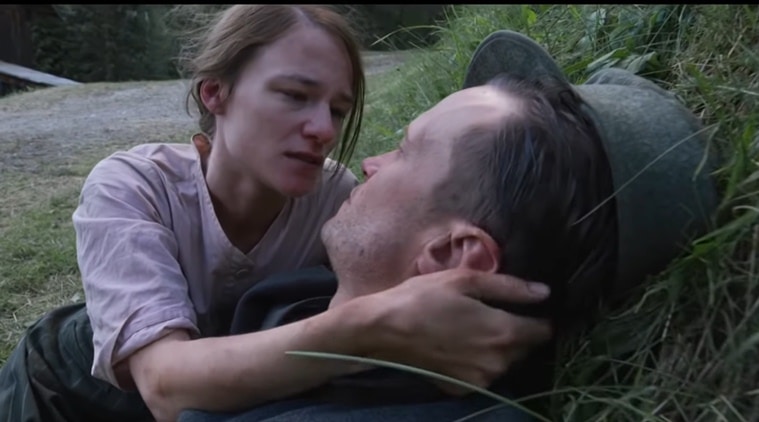
In the village he lives – a picturesque valley resting between snow-capped mountains – the world’s problems seem light years away. That's a good thing in general but sometimes it meant the prose didn't flow as smoothly as it could have.Franz is a hard-working Austrian farmer who loves his family and is devoted to his faith. That makes sense, because I did notice she wouldn't use a long word where a short word would do. On the jacket, I see that the author writes children's books. The author could have made that believable by inventing some media coverage of the controversial will, but she didn't bother. Two, the fact that someone decides to republish the grandfather's novel at exactly the same moment Louise inherits the copyright. It felt contrived, done purely to enable part of Louise's journey to happen. Sure, she disliked him but surely she would just have ignored his mail altogether? After all, as far as she knew it was just fan mail and other such "rubbish". She had to be, to create the unjust will and to explain why she was opening and destroying her husband's mail.

One, that Constance could possibly be such an evil, vindictive character. There were two other ideas that didn't gel with me.

Traumatic for the child, certainly, but it left me with a feeling of anti-climax - as well as wondering what the burning books were for (he had nothing to hide) and what his wife meant by "what he was". Even though it's all about a small boy in a POW camp and the author was a small boy in a POW camp - excuse me? So, his "hidden life" relates only to the true meaning of the events around the death of his mother. And this is the first plot device that's hard to swallow - the family assume his novel is NOT autobiographical. But neither of these mysteries is ever explained, and it left me feeling that the author changed her mind about what his secret would be, half-way through the book!Īs it turns out, his "hidden life" isn't hidden at all - it refers to his childhood in a Japanese POW camp, which his family is aware of, and which he wrote a novel about. We're kept guessing what it might be, with hints like his wife saying she loved him until "she found out what he was", and his bonfire to burn of all his red-covered notebooks. It's no spoiler to say that the "hidden life" is Louise's grandfather's - it's obvious very early on.
/cdn.vox-cdn.com/uploads/chorus_image/image/63868253/hiddenlife4.0.jpeg)
However the story was ultimately unsatisfying. I got a nice sense of place from her descriptions, too. What I liked about this book - its portrayal of the feelings and reactions of some of the main characters, which were touchingly expressed. She has also won prizes for her poetry and was a joint winner of the Smith Doorstop Poetry Pamphlet Award, offered by the publisher of that name. Geras won two prizes in the United States, one the Sydney Taylor Book Award for the My Grandmother's Stories and the National Jewish Book Award for Golden Windows. Her novels for adults include: Facing the Light, Hester's Story, Made in Heaven, and A Hidden Life. Her best-known books are Troy (shortlisted for the Whitbread Prize and Highly Commended for the Carnegie Medal) Ithaka, Happy Ever After (previously published as the Egerton Hall Trilogy), Silent Snow, Secret Snow, and A Thousand Yards of Sea. She has written more than 95 books for children, young adults, and adults. Her first full-length novel was The Girls in the Velvet Frame. Geras's first book was Tea at Mrs Manderby's, which was published in 1976. She was known for her stage and vocal talents, but decided instead to become a full-time writer. She attended Roedean School in Brighton and then graduated from St Hilda's College, Oxford with a degree in Modern Languages. Her father was in the Colonial Service and she had a varied childhood, living in countries such as Nigeria, Cyprus, Tanzania, Gambia and British North Borneo in a short span of time. Geras was born in Jerusalem, British Mandatory Palestine. Her husband was the Marxist academic Norman Geras and their daughter Sophie Hannah is also a novelist and poet. Adèle Geras FRSL (born 15 March 1944) is an English writer for young children, teens and adults.


 0 kommentar(er)
0 kommentar(er)
